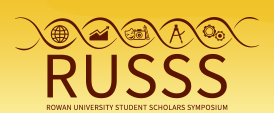Date of Presentation
4-23-2024 9:00 AM
College
College of Science & Mathematics
Faculty Sponsor(s)
Dr. Lark Perez
Poster Abstract
• Vibrio cholerae is a gram-negative anaerobic bacteria that inhabits brackish or saltwater areas.
• Causative agent of cholera, which results in acute diarrhea and dehydration.
• Uses quorum sensing, a cell density dependent method of communicating with other bacteria and regulating its entire lifecycle of infection. (gene expression of functions such as biofilm formation, virulence, and more)
• Vibrio cholerae determines bacterial population based on the secretion of several signaling molecules called an autoinducer from others of their kind.
• Upon adequate accumulation, they can deactivate their virulence and begin to leave their host’s body to continue infecting other organisms.
•The goal of this experiment is to identify the structure of and isolate one of the autoinducer molecules. Current studies suggest there are four chemical inputs in V. cholerae, two are known (Ea-CAI1/CAI-1 circuit and the AI-2 circuit).
Student Keywords
quorum sensing, v. cholerae
Disciplines
Chemistry
Document Type
Poster
Included in
Identifying V. Cholerae's Autoinducer to Manipulate Its Quorum Sensing
• Vibrio cholerae is a gram-negative anaerobic bacteria that inhabits brackish or saltwater areas.
• Causative agent of cholera, which results in acute diarrhea and dehydration.
• Uses quorum sensing, a cell density dependent method of communicating with other bacteria and regulating its entire lifecycle of infection. (gene expression of functions such as biofilm formation, virulence, and more)
• Vibrio cholerae determines bacterial population based on the secretion of several signaling molecules called an autoinducer from others of their kind.
• Upon adequate accumulation, they can deactivate their virulence and begin to leave their host’s body to continue infecting other organisms.
•The goal of this experiment is to identify the structure of and isolate one of the autoinducer molecules. Current studies suggest there are four chemical inputs in V. cholerae, two are known (Ea-CAI1/CAI-1 circuit and the AI-2 circuit).

